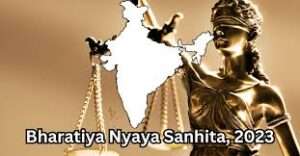
This article has been written by Jatin Rana ( pursuing a B.A.LL.B. (Hons.) (IVth Year) from Law College Dehradun faculty of Uttaranchal University.)

Plucking sweet fruits from the tree and enjoying every fruit but still calling it a poisonous tree, is what Prostitution looks like.
Introduction
Prostitution is one of the oldest professions followed on the globe. It is the profession of selling sex in exchange for money or any other required property or object. Prostitution is deeply rooted in society and the main cause of its rooting is that people are seeking pleasure out of it. Even after seeking sexual pleasure out of prostitution, people do not accept it and consider it an unethical act.
On the basis of the way of indulgence, Prostitution can be classified into two different categories,
- Independent Prostitution: – Indulging any person in prostitution with his full consent and by his own efforts is called independent prostitution. The person joining prostitution should be free from any compulsion or force and also no person should help him in joining prostitution even with the consent of the person willing to join the profession.
- Dependent Prostitution: – If any person with or without consent indulges in prostitution with the support of any person, it will be called as dependent prostitution.
On the basis of the consent of the person willing to join the profession, dependent prostitution can further be divided into two types,
- Consensual: – When any person joins prostitution and any second-person helps him to join the profession with the consent of the person willing to join the profession, it is called consensual dependent prostitution.
- Forced: – When any person joins prostitution against his wish or consent and under any force from the second person, it is called forced dependent prostitution. In this type of prostitution, mostly trafficked people are forced to join the profession and after that, their prostitution is exploited.
Present Social Status of Prostitution
In India, prostitution is deeply rooted in society and a large number of people are seeking sexual pleasure out of it. People on one side are getting their sexual desires fulfilled with prostitutes and on the other side, they consider it as an unethical profession.
According to the Hindu religion, it is immoral to have a sexual relationship before the religious ceremony of marriage and also to have multiple sexual relationships with people after marriage.
The social issue regarding prostitution is that people are considering prostitution as an unethical and immoral act and the same people are seeking sexual pleasure out of it.
Present Legal Status of Prostitution
In India, there is only ‘The Immoral Trafficking (Prevention) Act, of 1956’ which particularly deals with prostitution. ‘The Indian Penal Code, of 1860’ also has some provisions which deal with prostitution but to a limited extent.
Under ‘The Immoral Trafficking (Prevention) Act’ there is detailing of some prostitution-related crimes. Some of those crimes are listed below,
- Providing any property on rent, sale, or lease for the purpose of brothels or managing brothels.[1]
- If any person of the age of more than eighteen years is found living on the earnings of any prostitute. Here living partially or wholly, both are crimes.[2]
- If any person induces or forces someone to join prostitution with or without consent.[3]
- If someone detains any person with an intention to make that person have sexual intercourse with someone who is not his spouse, the person who detains shall be punished for the same.[4]
- Running prostitution in any public area or under 200 meters from hospitals, schools, hostels, religious places, etc.[5]
- Seducing or soliciting in public areas may create a nuisance in society, thus it is made punishable.[6]
‘Indian Penal Code, of 1860’ also deals with the prostitution of minor children. It deals with,
- Selling and buying of minor children for the purpose of prostitution.[7]
- Inducing or forcing any minor girl to carry on prostitution.[8]
- Sexually exploiting any trafficked minor child.[9]
- Transporting any girl from foreign countries or from the State of Jammu and Kashmir into India for the purpose of prostitution.[10]
After examining prostitution-related Indian laws, it is well clear that laws have only criminalized acts lying under ‘Dependent Prostitution’. Every crime listed above is related to dependent prostitution and is far away from independent prostitution.
The issue with the present legal status of prostitution is that law is silent in the matter of ‘Independent Prostitution’. Law has neither declared independent prostitution as legal nor illegal.
The present gurgling issue of legalizing prostitution wholly deals with independent prostitution. The judiciary is well pronounces judgments in the form of due process of law, but it is the reaction after the action of the accused. Here, people want laws legalizing and governing independent prostitution which will bound people to act according to the procedure established by law.
Impacts of further Legislating Laws regarding Prostitution
As discussed above, only dependent prostitution is made illegal in India. There are no laws governing independent prostitution. So, the absence of laws has already made independent prostitution a legal profession in India.
Legality on the basis of the absence of laws is misunderstood in the society. People consider both independent and dependent prostitution as illegal acts and prostitutes are also treated same in the society.
The impacts of legislation of laws can be studied in three different aspects,
- Impacts on the prostitutes
- Impacts on the customers of prostitutes
- Impacts on the State
Impacts on the prostitutes: –
Legislation laws will greatly help prostitutes in different ways and some of them are discussed below,
- In India, fundamental rights are conferred to every citizen irrespective of their caste, religion, profession, race, etc. and if we examine the implementation of these rights over sex workers, we will conclude that there is no proper implementation of fundamental rights.
There are many cases where sex workers are assaulted, and they just remain silent because society considers their profession unethical and illegal. They refuse to file FIRs at police stations and their reports are not accepted because they are treated as criminals following illegal profession.
Proper laws will help in the implementation of the fundamental rights of sex workers and will also help them to stand against all illegal acts that happen against them.
- Prostitution is deeply rooted in society but still, people do not accept it because they consider dependent prostitution and independent prostitution as the fruits of the same branch.
Legislation of laws in India will help people to understand dependent prostitution and independent prostitution as separate topics. This may also lead to the acceptance of independent prostitution in Indian society and prostitutes will be recognized as well accepted legal profession.
- When Indian society accepts prostitution as a legal profession, people will move to red light areas without any fear and hesitation, and this will help sex workers as their quantity of customers will increase and will lead to the economic advancement of sex workers.
- After the legislation of laws, sex workers can represent themselves in society as people following the legal profession which will help them to improve their image in society.
Impact on the Customers of prostitutes
- Society misunderstands independent prostitution and dependent prostitution as the same topics and considers prostitutes and their customers following illegal acts. Police also raid areas where prostitution is carried on. When the Indian Legislature makes laws regarding prostitution, customers may move freely to red-light areas without any fear or hesitation.
- Also, people willing to join prostitution independently and with their full consent may join the profession without any fear or hesitation.
Impact on the State
- After well recognition of laws in India, the profession will be well-acknowledged in society. A state may impose a tax on this profession which will help the State in economic advancement.
- Tourism prostitution will be promoted which will again promote economic advancement to the state.
Conclusion
There are a total of 20 million prostitutes in India and every prostitute has an average of 200- 600 customers per year. From these figures, it is well clear that a large number of people visit red light areas as customers, but still, society considers prostitution as an unethical and illegal act. The reason behind this mentality of the people is that they don’t differentiate between dependent and independent prostitution.
Whenever there is any illegal act against prostitutes, the judiciary settles it. But here Indian Legislature should also take the initiative regarding independent prostitution and should make laws regarding it. This will change beliefs and mentality of people regarding prostitution because they will understand the difference between dependent prostitution and independent prostitution.
[1] The Immoral Traffic (Prevention) Act 1956, sec 3
[2] The Immoral Traffic (Prevention) Act 1956, sec 4
[3] The Immoral Traffic (Prevention) Act 1956, sec 5
[4] The Immoral Traffic (Prevention) Act 1956, sec 6
[5] The Immoral Traffic (Prevention) Act 1956, sec 7
[6] The Immoral Traffic (Prevention) Act 1956, sec 8
[7] Indian Penal Code 1860, sec 372 and 373
[8] Indian Penal Code 1860, sec 366A
[9] Indian Penal Code 1860, sec 370A
[10] Indian Penal Code 1860, sec 366B
- HISTORY & EVOLUTION OF LAWS OF PREVENTIVE DETENTION IN INDIA
- JUDGEMENT PROCEDURES IN THE BHARATIYA NAGARIK SURAKSHA SANHITA
- Understanding Section 187 of the Bharatiya Nagrik Suraksha Sanhita (BNSS), 2023: A Comparison with CrPC
- What are keys changes introduced in BHARTIYA NYAYA SAHITA 2023
- An Analysis of Chapter IX of the Bharatiya Nyaya Sanhita, 2023: Of Offences Relating to Elections
- Business Law
- Case Law
- Civil Law
- Constitutional Law
- Consumer Protection
- Criminal Law
- Current Affairs
- Current legal issues
- Environmental Law
- Intellectual Property
- Legal Facts
- Legal News
- Uncategorized
LegalOnus
Aequitas Sequitur Legem






